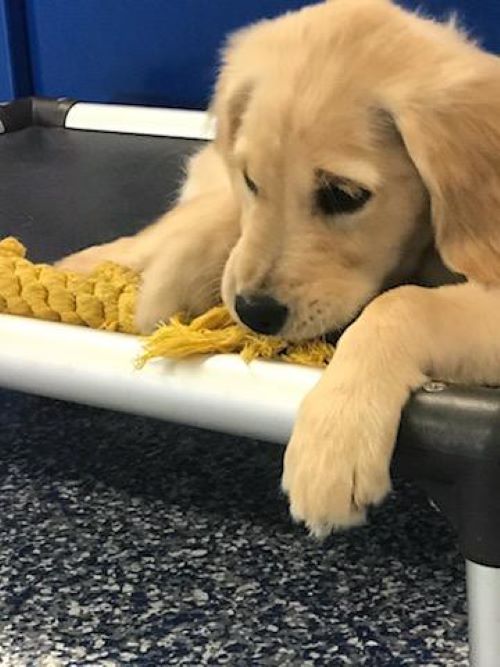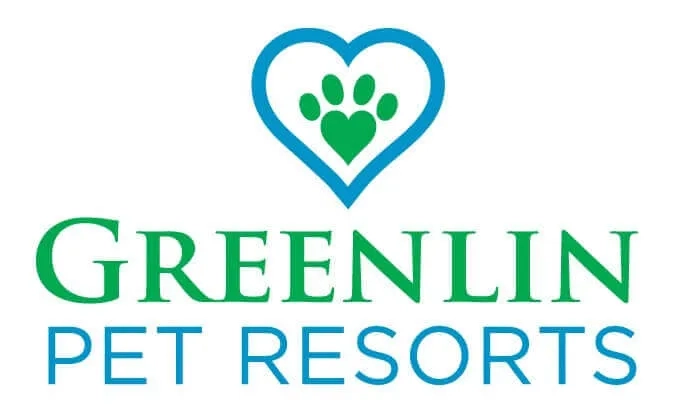Tips for Dealing With Chewing in Puppies
 Puppies can be adorable, but they still have sharp teeth. They’ll put those teeth to good use when left to their own devices. In fact, chewing is one of the many ways a puppy keeps stimulated while learning more about the world around them.
Puppies can be adorable, but they still have sharp teeth. They’ll put those teeth to good use when left to their own devices. In fact, chewing is one of the many ways a puppy keeps stimulated while learning more about the world around them.
If you and your puppy are going to get along well, you will need to teach it what it can and cannot chew on. It helps if you can provide good food, exercise, and appropriate toys so your puppy is less likely to chew on your belongings, your furniture, or you!
Why Do Puppies Chew?
Just about every puppy will wind up chewing something it isn’t supposed to. But if this is a recurring problem, you might want to figure out what the root causes are.
Teething Time
The worst time for chewing and nipping is usually when your puppy is three to six months old. This will be when your pet’s baby teeth fall out, and its adult teeth move into place. During this “teething” period, your puppy’s mouth and gums will be sore, and your puppy will frequently want to chew on something to relieve the discomfort.
Keeping Entertained
Human children are taught to play with their hands. Puppy paws are only so useful in that department, so they’ll instinctually want to instead interact with objects with their mouth. It’s a way of learning about the world around them, in part. But it’s also a way to make them feel better. Puppies may want to chew on something because they feel stressed. Chewing is a typical response to separation anxiety: when your dog overreacts to being left alone.
Or, your pet might need to play more and work off some of its puppy energy. Bored puppies are more likely to chew on things they aren’t supposed to.
Confusion on What’s a Toy
Your dog might need puppy obedience training to help learn what it is and isn’t allowed to chew on. A puppy should always be provided with some safe objects for it to work out its teeth, gums, and jaws. A certain amount of chewing is natural and healthy, so your puppy will want some sort of chew toys to play with. It will be up to you to let your puppy know what it can and cannot chew.
Learning Social Skills
A related behavior a puppy owner should be aware of is “mouthing.” Mouthing is when a puppy maneuvers its jaws around something and tries to close them gently. You can often see this when pups in a litter play together: one puppy will move its jaws around another’s legs or muzzle and then close its mouth. But this isn’t a bite; the puppy won’t apply much force. If the puppy bites too hard, its litter mate will yelp, and the two will quit playing.
This kind of playing might seem odd, but it’s instinctive and actually very useful. Mouthing is how puppies learn “bite inhibition“: the ability to control their jaw muscles so they can use their mouths to hold and carry things without damaging them.
Mouthing is also part of how they learn about the world around them: “that stick over there, is it hard or soft? Will it move if I touch it? I’ll use my mouth and find out!”
The problem comes when your puppy starts mouthing and nipping at your fingers, wrists, or feet. Even if it doesn’t mean any harm, you don’t want your pet to do this with strangers.
How to Train Your Puppy So It Only Chews Things It’s Allowed to Chew
The first thing to remember is that puppies need a lot of attention. We all have busy lives, and we can’t be home all the time. And even when we are home, we often have chores to do. But with a puppy, the more time and attention you can give, the better. Over time through your natural interactions, your puppy will absorb which behaviors are appropriate and which aren’t, but you and your family need to give consistent feedback.
Provide Them With Safe Options for Chew Toys
The other key is to make sure your puppy has chew toys to keep itself occupied. You can’t stop your pet from chewing completely, so you want it to get used to having toys that it is allowed to chew on. There are a wide variety, ranging from rubber kongs to nylon bones to stuffed chew toys. Just keep an eye on these chew toys and watch for small parts that might break off and become a choking hazard.
Whatever you want to use as a chew toy, be careful about using household items, such as old shoes or clothing. You don’t want your puppy to get into the habit of thinking that footwear is a chew toy; it won’t be able to distinguish between a worn-out pair of shoes and your stylish new loafers.
Help Your Pup Through Teething
If your pet is in the teething stage, you can help it out by putting chew toys in the freezer and getting them cold before it plays with them. The cold will help numb the teeth and gums, giving your friend extra relief from the discomfort of having baby teeth falling out and adult teeth growing in.
Avoid Mishaps When Not Home
If you can’t be at home, you should make sure you have put away anything valuable that a puppy might chew on. Or, you may want to isolate your puppy by putting it in a crate or using dividers to fence it in a safe area. Be sure to leave it with enough water and a couple of chew toys.
To ease separation anxiety and minimize the risk that your puppy will chew on things to release stress, try leaving some of your scent in the vicinity, especially on the chew toys themselves. Try rubbing them in your hands for a minute or two. The scent will comfort your puppy, and it will be encouraged to chew on them.
You can also try leaving on calm music — light classical works well — as this will also soothe your pet’s nerves and reduce the urge to chew on things.
Burn Off Excess Energy
When your puppy is bored and has a lot of pent-up energy, it may try to work that off by chewing, so by all means, play with your pup. Try playing games that give it a chance to work its jaw muscles, such as tug of war with a rope or a chew toy. Or playing fetch, so it can learn to carry things in its mouth and work on that bite inhibition.
When and How to Discipline Your Puppy
When you catch your puppy chewing on something it isn’t supposed to (and it’s bound to happen sometimes) you can command it to stop, but don’t dawdle. A sharp “Hey, Stop!” or “Drop it!” will suffice.
Lectures won’t help; a puppy will only connect an event with its actions for about three seconds. You need to be firm but act quickly. For the same reason, if you find something that’s chewed up there’s no point in showing it to your puppy and scolding it after the fact. Your puppy won’t understand, and the confusion may lead to bad habits.
The same goes for mouthing. When your puppy starts mouthing your hand, give a quick yelp (a higher pitch is better) while holding still. This will signal that you are done playing. A few minutes later, you can offer your pet a proper chew toy to play with.
Remember that positive reinforcement always works better than teaching a pet to avoid punishment. You should make a point of praising your pet and even giving it treats when you see it doing the right things, like acting calm or chewing on its chew toys. This positive reinforcement lets your puppy know what it is allowed to chew on, and it’s a lot more pleasant for both of you.
Get Help With Greenlin Puppy Obedience Training
You and your puppy have so much to look forward to in years of discovery and friendship. Smart puppy training can get your relationship off to a good start. Our professional staff is committed to positive training that will be fun for you and your pet.
Greenlin offers puppy training in central Pennsylvania to help come to your rescue. Our professional staff has experience with all kinds of dogs, so our team can help you understand your puppy’s personality. And if your puppy happens to have a chewing problem, our team can help you find the causes and take steps to correct it.
During puppy obedience training, your pet will learn to respond to verbal cues and basic commands. We will also work with your family so everyone is on the same page and your new family member gets consistent discipline. You will leave with the confidence that will help you guide your new friend through puppyhood into life as a well-adjusted, happy adult dog.
We even offer a combination of boarding and training, what we call our Puppy Academy. This program allows your puppy to learn in a highly stimulating and structured environment, giving you the foundation for easier training in the future and a happier life together overall.
Give Greenlin a call at one of our five Harrisburg area locations. We’ll be happy to discuss your puppy’s needs and schedule a free evaluation to get us started.
